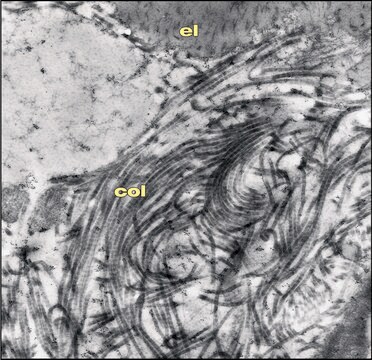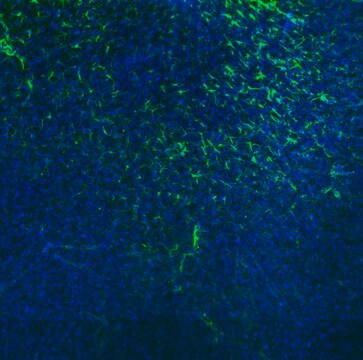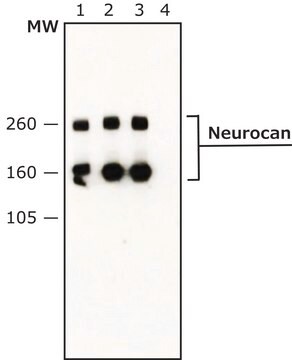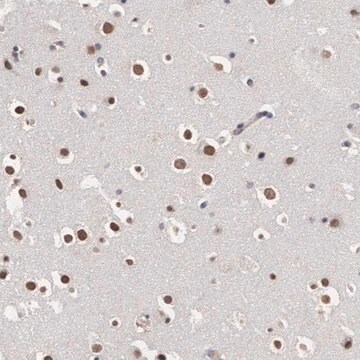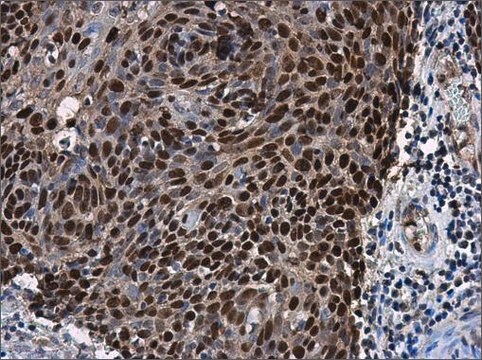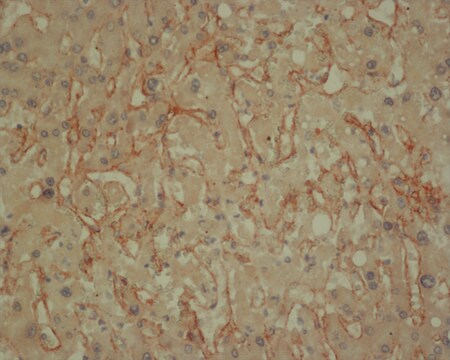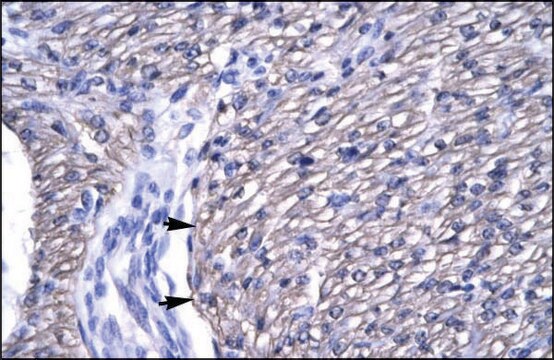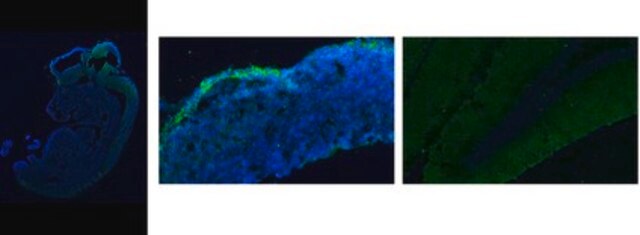ABT1347
Anti-Neurocan Antibody, C-terminal
from rabbit
Sinónimos:
Neurocan core protein, 245 kDa early postnatal core glycoprotein, Chondroitin sulfate proteoglycan 3
About This Item
Productos recomendados
origen biológico
rabbit
Nivel de calidad
forma del anticuerpo
unpurified
tipo de anticuerpo
primary antibodies
clon
polyclonal
reactividad de especies
rat, mouse
envase
antibody small pack of 25 μL
técnicas
immunofluorescence: suitable
immunohistochemistry: suitable
radioimmunoassay: suitable
isotipo
IgG
Nº de acceso NCBI
Nº de acceso UniProt
Condiciones de envío
ambient
modificación del objetivo postraduccional
unmodified
Información sobre el gen
rat ... Ncan(58982)
Descripción general
Especificidad
Inmunógeno
Aplicación
Immunohistochemistry Analysis: A representative lot detected Neurocan in E13 and E14 mouse ventral diencephalon and retina in C57 mouse embryos (Leung, K.M., et. al. (2004). Brain Res Dev Brain Res. 152(1):1-10).
Cell Structure
Calidad
Immunofluorescence Analysis: A 1:500 dilution of this antibody detected Neurocan in E14 rat embryo, E14 rat neocortex, and adult rat brain hippocampus cells.
Descripción de destino
Forma física
Almacenamiento y estabilidad
Handling Recommendations: Upon receipt and prior to removing the cap, centrifuge the vial and gently mix the solution. Aliquot into microcentrifuge tubes and store at -20°C. Avoid repeated freeze/thaw cycles, which may damage IgG and affect product performance.
Otras notas
Cláusula de descargo de responsabilidad
¿No encuentra el producto adecuado?
Pruebe nuestro Herramienta de selección de productos.
Código de clase de almacenamiento
12 - Non Combustible Liquids
Clase de riesgo para el agua (WGK)
WGK 1
Punto de inflamabilidad (°F)
Not applicable
Punto de inflamabilidad (°C)
Not applicable
Certificados de análisis (COA)
Busque Certificados de análisis (COA) introduciendo el número de lote del producto. Los números de lote se encuentran en la etiqueta del producto después de las palabras «Lot» o «Batch»
¿Ya tiene este producto?
Encuentre la documentación para los productos que ha comprado recientemente en la Biblioteca de documentos.
Nuestro equipo de científicos tiene experiencia en todas las áreas de investigación: Ciencias de la vida, Ciencia de los materiales, Síntesis química, Cromatografía, Analítica y muchas otras.
Póngase en contacto con el Servicio técnico